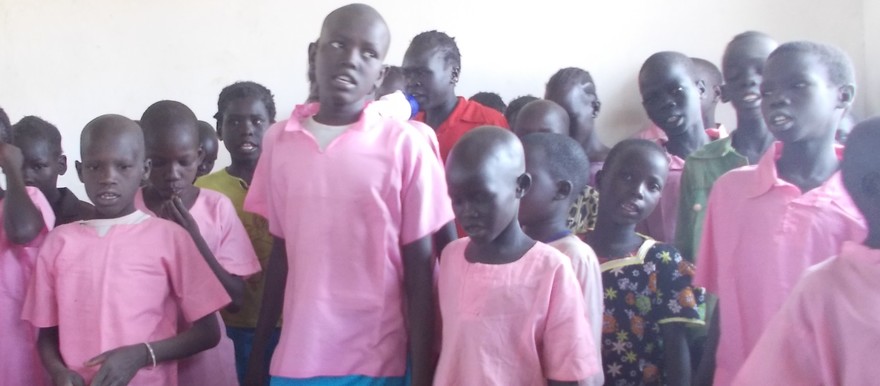A primary school in Aweil town has received a donation of food rations for children but still lacks teachers, classroom space, books and other scholastic materials.
The World Food Programme (WFP) provided last Thursday one year of food rations to Ariathdit Primary school in Aweil town. It is not the first time for the UN to provide rations to the school.
Head teacher Santino Malueth Jong complained, however, that the school’s problems have nothing to do with lack of food. “We have only 8 government teachers and 10 part timers, part timers comes to school as they please because they get nothing from the school,” he said.
“Now in this school, primary 8 and 7 are having only two teachers which are part time. We are requesting our national government of general education to look into this seriously otherwise South Sudan will be a country of illiterate guys,” he added.
In interviews with Radio Tamazuj, the pupils expressed concerns about the school. “We are facing a lot challenges in the school, one, lack of teachers especially in primary eight classes, which contains a maximum of 109 pupils. They continued saying there is lack of benches for sitting in the class, now we used broken bricks for sitting, lack of textbooks because there is high confusion now in the curriculum, the curriculum becomes many to us. We don’t know which curriculum will be taught and which will be on the exams later,” said one pupil.
Pupils explained that there is confusion over the curriculum, with competing materials from Uganda, Kenya, South Sudan and Sudan. They mentioned also poor conditions including lack of latrines – there are only three – and congestion in classrooms.
Akuol Deng Ngong, a young girl of 17 years old in the primary 8 level, said that nine of her classmates were worried they would not sit for the exams because they would be pulled out of school: “The point is, our big people in the government and UN agencies want girls that are in primary eight or in primary. They take girls by force or through parents’ agreement which is not good at all.”
“Now we are praying to God Almighty to at least bless the heart of such people. For example last year after the completion of primary eight exams, three girls were immediately taken away by big people working for the government which led them to drop out of their studies,” she said.
Ariathdit Primary School was known as Salam Girls’ School during the period of rule by Khartoum. The name was changed to Ariathdit, meaning ‘blessing’, in 2010 by then-minister of education Stephen Chol Ajonga. The name also belonged to one of the state’s most famous spear-masters, so the school honours his memory.




